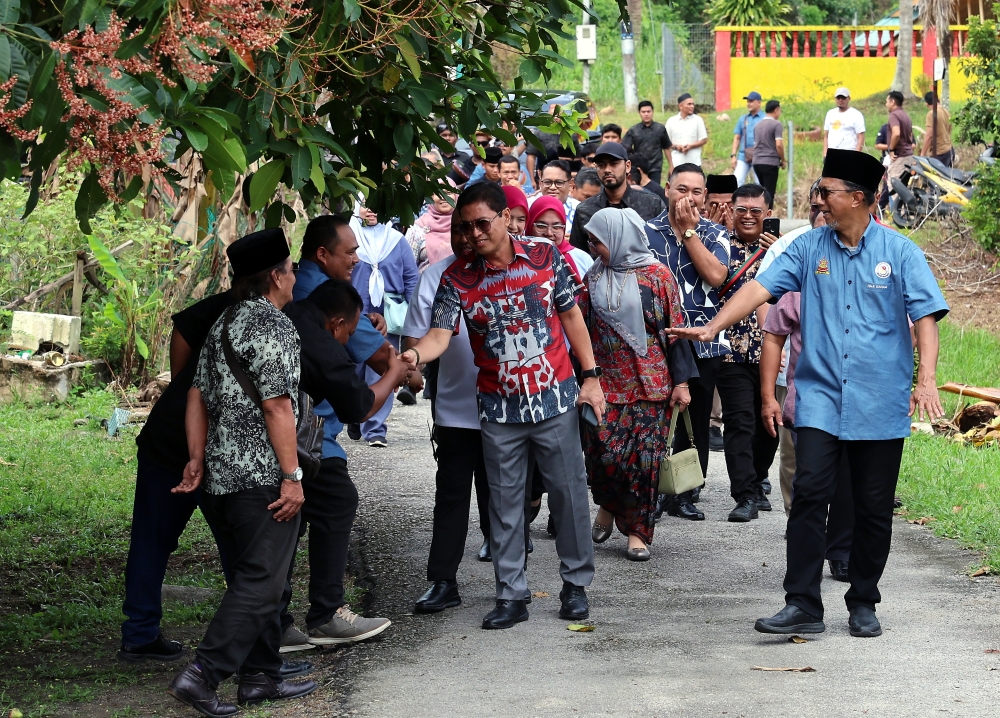SINGAPORE, Jan 6 — The risk of young children being diagnosed with myocarditis, a type of heart inflammation, after getting inoculated against Covid-19 is “far lower” than the risk of getting the same complication when infected with the disease, an official from the Ministry of Health (MOH) said.
Associate Professor Kenneth Mak, director of medical services at MOH, was giving an update on Wednesday (Jan 5) on the vaccination progress of children aged between five and 11, during a press conference by the national Covid-19 task force.
On Dec 21, Singapore began vaccinating children in this age bracket with a smaller dose of the vaccine compared to adolescents and adults.
Based on the Health Sciences Authority’s approval of the medical suitability of the vaccines, children in this age category will be offered only the Pfizer-BioNTech Covid-19 vaccine.
Assoc Prof Mak said that vaccination for young children is “progressing steadily”, with 11.4 per cent of them having received at least one vaccine dose as of Jan 3.
Efficacy and safety not compromised
Last month, the Reuters news agency reported that the United States’ Centers for Disease Control and Prevention (CDC) had received reports of at least eight cases of myocarditis among children of the same age group who got the Pfizer-BioNTech vaccine.
On Wednesday, Assoc Prof Mak quoted preliminary safety findings on the matter from the US CDC, released at the end of last month.
He said up to Dec 19, up to 8.7 million doses of the vaccine had been administered to children who were between five and 11 years old in the US.
The preliminary safety findings were similar to those of the clinical trials conducted before the US Food and Drug Administration granted authorisation for the vaccine to be used in the country.
For instance, there was a “low, serious adverse reaction rate”, which included reactions such as local injection site pain, fever, vomiting and allergic reactions, he added.
Only 11 cases of myocarditis had been reported out of the 8.7 million doses administered.
This corresponds with a post-vaccination myocarditis rate of about 1.3 per 100,000 population, Assoc Prof Mak added.
“(This) is far lower than the rate that has been seen in the older population. So the dose reductions and the use of the paediatric formulations has preserved the efficacy of the vaccine and not compromised on the safety of vaccination.”
To put things into perspective, Assoc Prof Mak said that the rate of myocarditis and pericarditis, an inflammation of the outer lining of the heart, associated with getting Covid-19 has been reported to be as high as 45 per 100,000 in youth aged between 12 and 17. — TODAY
"So clearly, the risk of myocarditis with vaccination is far lower than the risk of getting that same complication from infection," he added.
Two deaths have been reported in the US during their vaccination programme for young children, but the US CDC had said that they were not related to the vaccine, he noted.
Don’t wait till the last minute
In any case, Assoc Prof Mak stressed that the authorities here are “confident that the paediatric formulation of the Pfizer-BioNTech vaccine is safe for children” and urged parents to get their children vaccinated.
“We've been fortunate so far not to see many children infected with Covid-19. But the experience in other countries including the United Kingdom and the US is not so sanguine.”
Assoc Prof Mak said that the surge in the number of children being infected in the UK and the US is in part due to the children there being unvaccinated and they “continue to remain at risk” of being exposed to and infected with Covid-19.
He added: “With the coming Omicron wave, we expect to see more children being infected.”
Rather than deal with the pain of seeing their children sickened by the disease, Assoc Prof Mak urged parents to “accept the invitation” to register their children for vaccination at any of the vaccination centres that cater to them.
“Don't leave things to the last moment, thinking that you can wait until you see a surge of community cases come up before signing up.”
As the Omicron strain of the coronavirus is highly infectious, Assoc Prof Mak said that the public may find themselves overwhelmed by a large number of cases in the community over a short space of time.
Moreover, the vaccine-derived protection also takes time to mature and will not be in place until at least two weeks after the two-dose regime is completed, he added.
“So please do not wait, and allow your children to be vaccinated as early as possible for their protection and their well-being.” — TODAY




















